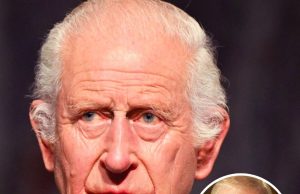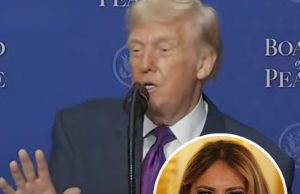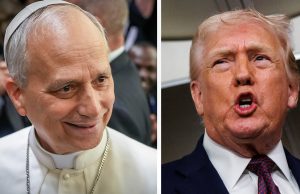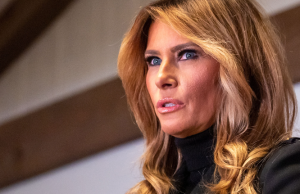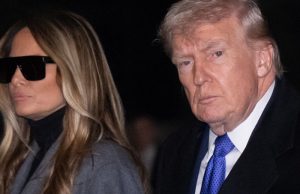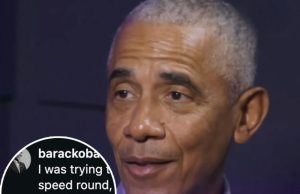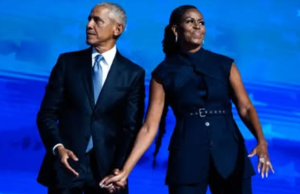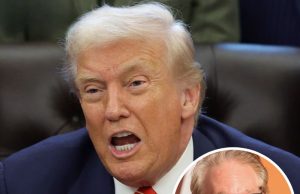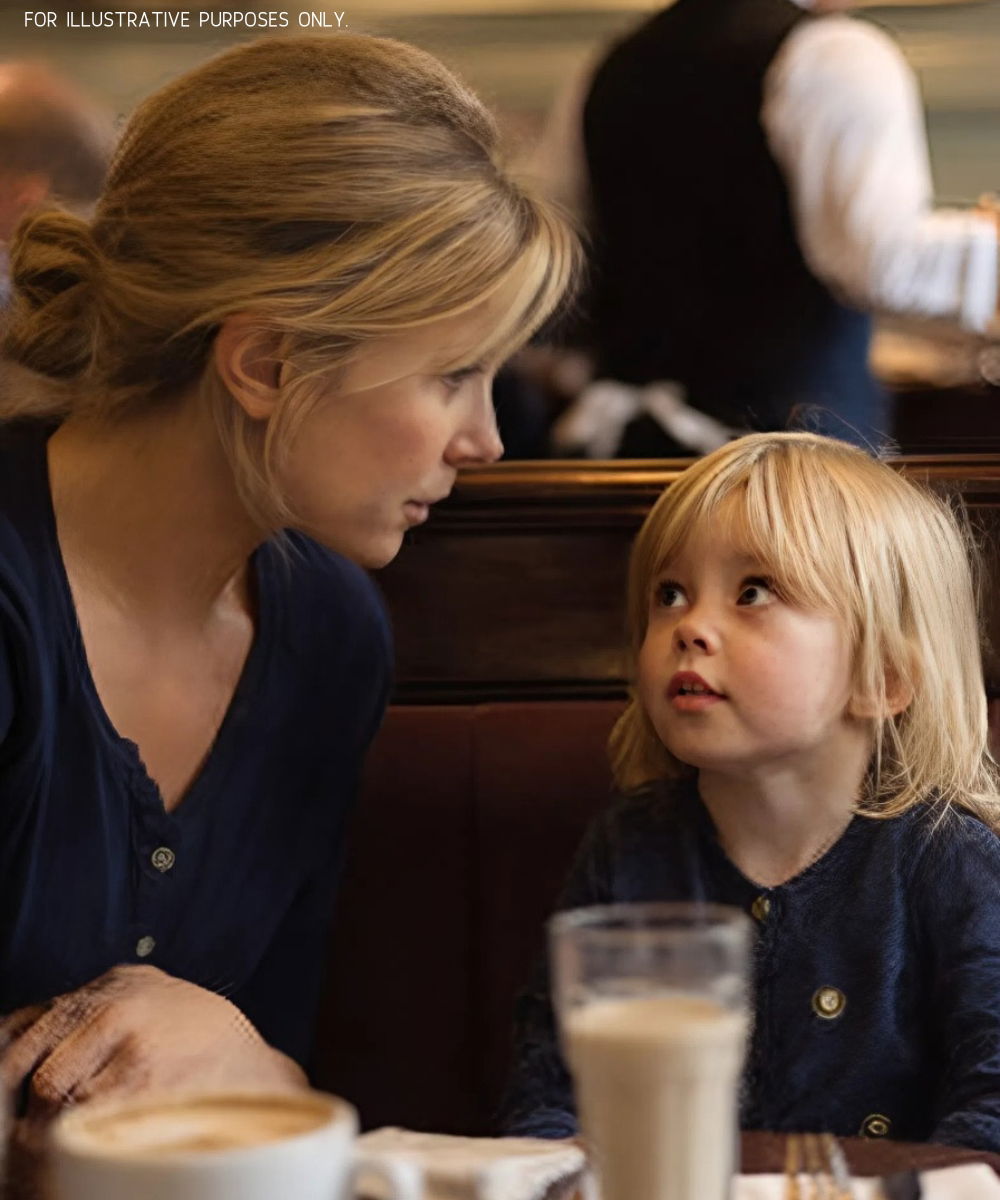
It was meant to be a typical Saturday lunch—just me and my five-year-old daughter, Naomi—at our favorite café near the university where I teach literature.
Since my husband Andre’s death two years ago, I’ve clung to routine, trying to keep Naomi’s world steady.
These lunches became a quiet tradition, a comforting illusion of normal life in the wake of everything falling apart.
That day, she wore her favorite pink hoodie and was drawing stars on a napkin. Mid-stroke, she froze.
Her hand hovered in the air, eyes locked on something behind me. “Mom,” she whispered, “that waiter looks just like Daddy.”
My breath caught. I turned slowly.
There he was—tall, lean, deep brown skin, strong jawline. He wore a black apron and carried a tray, smiling softly as he served a table near the window.
Then he turned slightly, and I saw it—a faint scar just under his left ear. Andre’s scar.
The one he got in college during a bad football tackle. My chest tightened.
Andre was d3ad.
There had been a car explosion on a Nevada highway.
No body, just wreckage, a wedding ring, and scattered belongings. The dental records matched.
We buried an urn. I grieved. I broke. I rebuilt. Now, here he was.
I looked at Naomi. “Are you sure?” She nodded. “It’s him.”
I stood up and told her to wait. I walked toward the back, pretending to look for the restroom.
My heart pounded as I got closer. I heard his voice: “Would you like water with lemon?”
Softer, but unmistakably his. I stepped beside him. “Excuse me,” I said.
He turned. Our eyes met. Familiar. Unchanged.
“Yes, ma’am?” he said with a polite smile.
I stared. “Do I know you?”
“I don’t think so,” he replied. “One of those faces.”
“You have a scar there,” I pointed.
He touched it. “High school accident.”
That was a lie. Andre was from college. He loved telling the story. I felt dizzy. “You’re lying,” I whispered.
He looked confused. “Is everything okay?”
I stepped back. “Yeah. Sorry. Thought you were someone else.” I returned to Naomi, grabbed our things, and left the café without looking back.
In the car, my hands shook. Could he have faked his de.ath?
That night, I searched for anything about the café—Hollow Pine Bistro—no staff photos. No names. Just a contact email.
I wrote: “Visited today. Believe I recognized someone on your staff—tall, African American, scar under left ear. Possibly named Andre. Can you confirm?”
An auto-reply came instantly: “Thank you for contacting Hollow Pine Bistro. We will respond within 48 hours.”
I barely slept. Naomi stirred once and asked, “Was it really him?” I didn’t know how to answer.
The next morning, I went back alone. He wasn’t there. I asked the hostess. “Do you have someone who looks like this?” I showed her a photo of Andre.
She shook her head. “No one here by that name. Sorry.”
That night, I got a reply to my email. “We reviewed shift logs and footage from your visit. No one matching your description appears in our system.”
I dropped the phone. Naomi and I both saw him. Now there was no proof.
The following day, I pulled a box labeled “Vegas Trip” from the attic. Inside were condolence cards, death certificates, and insurance forms.
Near the bottom, I found a car rental receipt—one-way, Las Vegas to Salt Lake City. Dated two days after the accident.
My stomach dropped. I called the rental agency.
After being transferred several times, someone confirmed: “Yes, that vehicle was returned. Signed by Andre Cole.”
That night, I hired a private investigator—Mara Donovan. She didn’t flinch. “You’re not crazy,” she said. “Let me find him.”
Three days later, she called. “He’s in Ogden, Utah. Lives under the name Julian Marsh.
Fake ID. Works off the books. No phone. Quiet life. Keeps to himself. But here’s the thing—he wears a wedding ring.”
My chest tightened. “He still pretends he’s married?”
“Looks that way,” she said, and sent the address.
I packed Naomi’s overnight bag, dropped her with my sister, and drove six hours to Utah.
The neighborhood was calm. His house was small with white trim. One car in the driveway. No doorbell. I stood there for a long time before knocking.
When the door opened, I stopped breathing. It was him. Andre. Alive.
His eyes widened. “Carla,” he said.
I slapped him. The sound cracked in the quiet. “You’re alive,” I hissed. “You let us grieve. You let your daughter cry herself to sleep for two years.”
He stood frozen. I pushed past him into the house. “Tell me the truth. All of it.”
He sat heavily. “It wasn’t supposed to be like this. Vegas wasn’t just a work trip.
A friend owed money to dangerous people. I got involved. They targeted me. Ran me off the road. I escaped before the fire. Everyone thought I di.ed.”
“You let it happen.”
“I thought disappearing was safer for you and Naomi.”
“You let us suffer,” I snapped. “You let me bury nothing.”
He buried his face in his hands. “I watched from a distance. I never stopped loving you both.”
“But you stopped being our family,” I said.
He looked up. “Does Naomi know?”
“She saw you before I did. She said, ‘That’s Daddy.’”
Tears filled his eyes. “Can I see her?”
“No,” I said. “Not until you prove you deserve to.”
He nodded. “Then I’ll try.”
I walked out.
At home, Naomi looked up. “Was it Daddy?”
“Yes,” I said. “But he made a huge mistake.”
“Will he come back?”
“Maybe. If he earns it.”
She smiled sadly. “I hope he does. I miss his giraffe jokes.”
“Me too,” I whispered, holding her tight.
Three weeks later, a letter arrived. No excuses. Just a promise:
“I’ll spend every day trying to fix what I broke. If Naomi ever wants to see me, I’ll be waiting.”
I folded it and tucked it away—for her. Because this was never just about a man who disappeared. It was about a little girl who never stopped recognizing the face she loved most.

